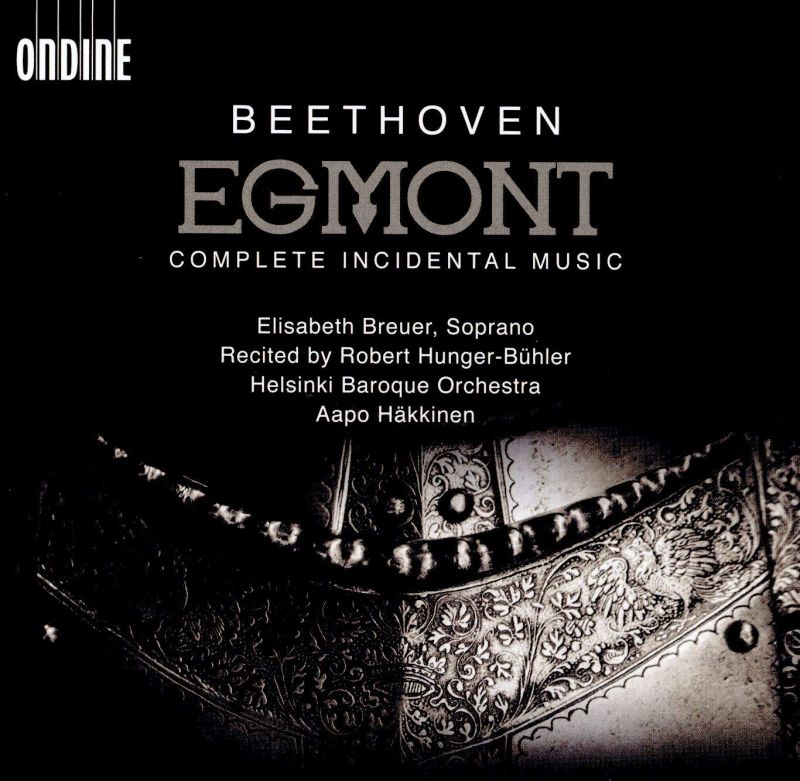BEETHOVEN Egmont (Häkkinen)
View record and artist detailsRecord and Artist Details
Composer or Director: Ludwig van Beethoven
Genre:
Orchestral
Label: Ondine
Magazine Review Date: AW2019
Media Format: CD or Download
Media Runtime: 52
Mastering:
DDD
Catalogue Number: ODE1331-2

Tracks:
| Composition | Artist Credit |
|---|---|
| Egmont |
Ludwig van Beethoven, Composer
Aapo Häkkinen, Conductor Elisabeth Breuer, Soprano Helsinki Baroque Orchestra Ludwig van Beethoven, Composer Robert Hunger-Bühler, Speaker |
Author: Peter Quantrill
These gestures are not isolated from each other by Häkkinen but they find their place in a symphonic drama originally voiced at every turn, building to an execution scene as plain as day. This is followed by a well-earned silence (even evoking memories of Furtwängler live in Berlin in 1947), and a rarely observed second cadence point. Without whipping up the coda with a contrived accelerando he allows a slight and natural quickening of pace and then lets the reprise off the leash in the concluding ‘Victory Symphony’.
I have concentrated on the Overture because – let’s face it – we all do. Once Beethoven’s music had become more in demand than Goethe’s words, Friedrich Mosengeil devised a poetic précis which is declaimed in full and invaluably printed likewise, with translation, in the booklet. The Swiss actor Robert Hunger-Bühler falls well on the ear, respecting the metre, declaiming with passion in the context of a live performance, yet without venturing to the melodramatic extremes of John Malkovich on a recent period-instrument production (Alpha, 9/16) uniquely offering both English and German versions of the narrative.
On the Alpha set, the Wiener Akademie is directed by Martin Haselböck, whose Beethoven is as dry as a bottle of Trocken and likewise best enjoyed in situ. The Helsinki set enjoys livelier characterisation and a much richer instrumental palette – Eduard Wesly’s oboe deserves special praise, but so does the four-strong horn section, and Häkkinen’s own discreet fortepiano continuo – and Elisabeth Breuer’s soprano is tonally matched to them in the two numbers designed by Beethoven for a singing actress. Presently unavailable outside a huge Decca box, George Szell’s VPO recording (10/70) deserves its reputation, and Häkkinen presents a worthy modern counterpart.
Discover the world's largest classical music catalogue with Presto Music.

Gramophone Digital Club
- Digital Edition
- Digital Archive
- Reviews Database
- Full website access
From £8.75 / month
Subscribe
Gramophone Full Club
- Print Edition
- Digital Edition
- Digital Archive
- Reviews Database
- Full website access
From £11.00 / month
Subscribe
If you are a library, university or other organisation that would be interested in an institutional subscription to Gramophone please click here for further information.




